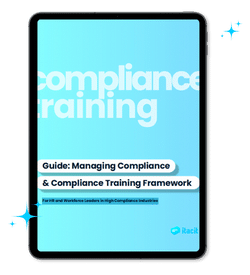According to 2018 Gallup figures, only 15% of employees worldwide feel engaged in their work, leading to the global cost of unproductivity at a staggering $7 trillion. There’s a clear opportunity for employee experience.
This evidence is at odds with the ‘our people are our best asset‘ mantra that many business leaders preach.
Perhaps some leaders are fibbing?
What is EX?
It’s always useful to have a definition, so here’s one from Mike Sharples, CEO of Brand Experiences:
“It’s the entire relationship between employee and employer. It encompasses every interaction and touchpoint with the organization and its stakeholders.”
So, feeding into EX is the tools to do the job, the work environment, and, of course, the working relationships. Line Managers especially play a vital role in EX – you’ve probably seen the quote about people leaving managers, not jobs.
EX should have parity with CX
After all, they are two sides of the same coin. If you treat your employees poorly, why should they treat your customers any differently? The employee experience opportunity opens doors for the CX opportunity, and vice versa.
Perhaps it may help business leaders see the value of their people if they thought of them more like ’employee accounts’ (as you have customer accounts).
Organisations work very hard to win new business and then spend a lot of time and energy to keep it. Each customer account has a financial value, but so has each employee.
When an employee leaves, it costs approximately 20% of their salary to replace them; as well as lost productivity and oftentimes increased workloads for the remaining team members, often leading to a drop in their motivation.
Also, if an employee earns, say, $100,000 if they’re only 70% productive you’re, in effect, losing $30,000 worth of value.
If sufficient time and effort were taken to understand what motivates employees, giving them meaningful work, and generally offering the best EX possible; then they would be more productive and less likely to leave.
Imagine how much value just a 5% increase in productivity from employees and a 5% decrease in turnover would bring?
Despite these rather obvious points, little is budgeted for EX in terms of tools to do the job, and key employee lifecycle touchpoints are often managed by HR employees as an add-on to their core duties.
As Jennifer Sproul, Chief Executive of the Institute of Internal Communication, says: “As organisations shift and the future of work evolves, organisations must seek to improve EX in a highly competitive global economy.”
Anyone can own the employee experience opportunity
HR has been at the top of the people tree for generations.
Given engagement statistics across the globe, it is fair to say that HR alone cannot be responsible for enabling EX. Look at your own HR people – are they more about people or policing? If the latter, their mandate will make an effective EX design unlikely.
EX is about putting people at the heart of an organisation, so only ‘people people’ should be given responsibility for it. These people could come from HR, Internal Communications, L&D or even Customer Service (especially as many of the EX principles come from CX).
The Employee Experience Opportunity Roadmap
There are three stages to the Roadmap:
- Define your EX strategy, underpinned by evidence-based research
- Monetise EX, so that senior leaders can see its value
- Create action plans for each part of the employee lifecycle, zoning in on moments that matter to employees and creating memorable experiences

If you believe in the importance of EX, then join the EX Evolution (which is supported by the Institute of Internal Communications) by firstly filling in the EXO survey (it will take 3-5 minutes to complete).
The results will be freely available, so you can benchmark them against your own organisation. Anyone in work across the globe can fill it in, irrespective of their job role, so please do share with friends, family, colleagues and social networks.
It’s about the people, stupid!
Happy hands are busy hands; and the more motivated employees are, the more productive they’ll be, and this leads to a more profitable organisation. The question is not ‘Can you afford to fully resource EX?’, but ‘Can you afford not to’?
Nicholas is an award-winning communicator with over a dozen years’ experience in the comms/engagement/employee experience space, both in the UK and in the Middle East.
A Fellow of the Institute of Internal Communications (IoIC) and a committee member of both Engage for Success and IoIC London, Nicholas’ mantra is to ‘keep the complex, simple’ and he believes that the employee experience should have parity with the customer experience.









